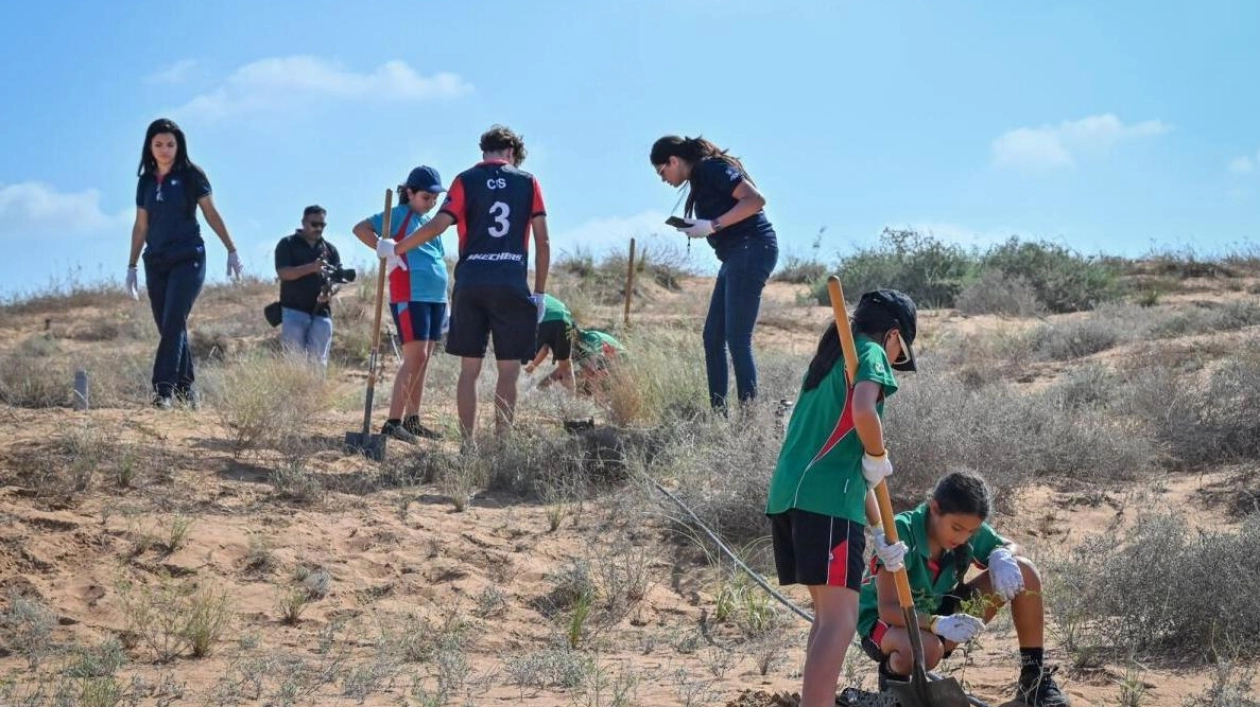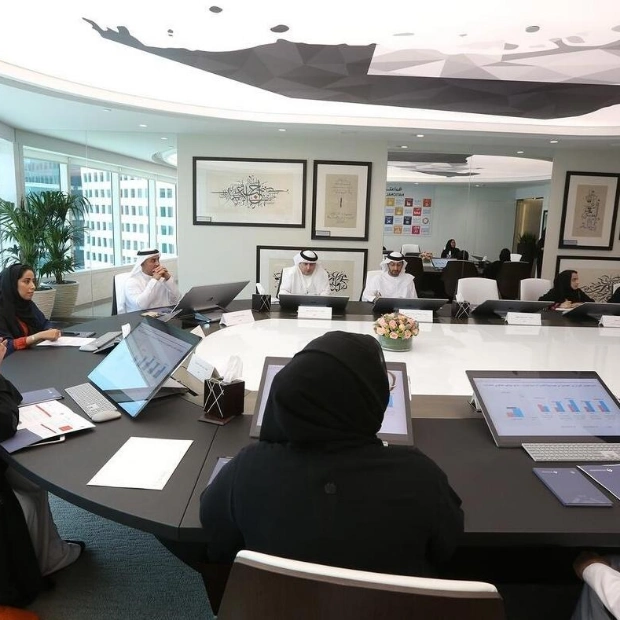KT Photos: Muhammad Sajjad
Over 150 students in Sharjah have initiated the planting of the first batch of seeds that will eventually grow into 20,001 trees. These students, aged between eight and thirteen, planted 2,500 Ghaf seeds in Mleiha on Monday. Renowned for their resilience in harsh desert environments, these trees are expected to reach maturity in the next five to seven years. Ghaf trees are known to enhance soil quality and can live up to 120 years. One Ghaf tree is projected to absorb more than 4.1 million tonnes of carbon dioxide throughout its lifetime. This planting event marks the initial phase of the ‘20,001 Trees for a Greener UAE’ initiative, spearheaded by Innoventures Education. The next phase, involving the planting of 2,000 trees, is slated for November, according to the group.
This sustainable initiative coincides with Innoventures Education’s 20th-anniversary celebrations and aligns with the UAE’s 'Plant the Emirates' campaign. “It’s wonderful to contribute to the environment, and I believe this activity provides students with valuable experience and physical exercise,” commented Maya, a Grade 11 student at Raffles World Academy. For Malak, a Grade 12 student from Collegiate International School, the experience of planting trees in the desert is a cherished memory. Candice Combrinck, head of primary and vice-principal at Dubai International Academy Al Barsha, emphasized that planting Ghaf trees is “a significant way to show our dedication to environmental sustainability.”
Hitesh Bhagat, principal of Dubai International Academy Emirates Hills, noted that the students were “extremely excited” to participate. “Their commitment to safeguarding the future was truly remarkable.” In addition to tree planting, the group is advocating for urban farming practices across its campuses. This includes establishing vegetable and herb patches, hydroponic systems, and honeybee colonies, all aimed at educating students about sustainable agriculture.
The positive effects of these initiatives are already evident. The vegetable and herb gardens, bolstered by the school’s beekeeping activities, have seen a 30 per cent rise in crop yields due to enhanced pollination. Fresh produce from these gardens is utilized in the school cafeteria, shared with the community, and featured in cooking clubs. Food waste from the cafeteria is composted, further enriching the organic gardens.
Source link: https://www.khaleejtimes.com






